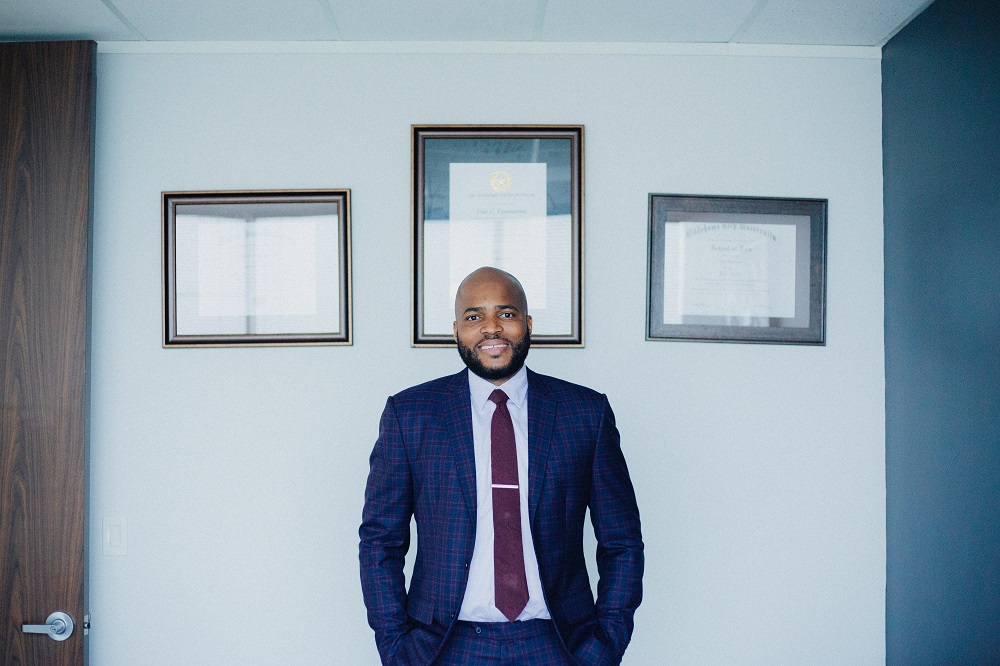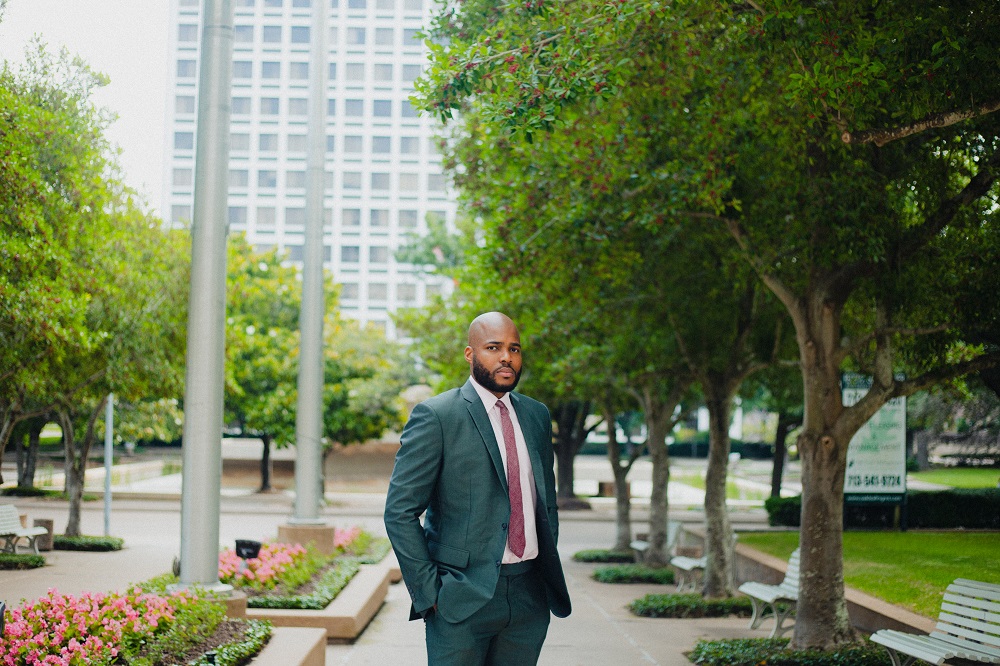Spotlight
Challenges of Enforcing Verbal Contracts

Verbal agreements often happen in everyday life. From simple service arrangements to more complex business deals, many rely on a handshake or a spoken promise. But when it comes to the legal enforcement of these agreements, things can get tricky. While verbal contracts can be legally binding in many cases, proving and enforcing them comes with significant challenges.
What Is a Verbal Contract?
A verbal contract is an agreement made through spoken words between two or more parties. In theory, it carries the same legal weight as a written contract, provided it meets the key elements of a valid contract: offer, acceptance, consideration (exchange of value), capacity, and legality. However, without written documentation, proving the existence and terms of the contract becomes much more difficult.
To know more about contracts, read this article: Understanding the Basics of Contract Law in Texas
Common Challenges in Enforcing Verbal Contracts
- Lack of Evidence
- The primary challenge in enforcing a verbal contract is the absence of physical evidence. With no written terms to reference, proving the specifics of the agreement is often reduced to “he said, she said.” This can create a scenario where one party may deny parts or all of the agreement, making it hard to establish a clear basis for enforcement.
- Disputes Over Contract Terms
- Even when both parties acknowledge that an agreement exists, they may disagree on the terms. Without a written document to clarify what was agreed upon, the details can become muddled over time. One party may remember certain provisions differently, leading to confusion and disputes about what each party is obligated to do.
- Burden of Proof
- In a legal dispute, the party seeking to enforce a verbal contract carries the burden of proof. This means they must present compelling evidence that the agreement existed and what its terms were. Without a written contract, this often relies on witness testimonies, phone records, emails referencing the agreement, or other circumstantial evidence. While these can help, they are not as strong as having a signed document.
- Reliance on Witness Testimony
- If a verbal agreement was made in the presence of others, witness testimony might be used to support the enforcement of the contract. However, witnesses may have limited recollection, or their memory of the agreement could be biased. Testimonies are inherently subjective and can be challenged in court, weakening the case.
- Statute of Frauds
- In some situations, Texas law (like the laws in many states) requires that certain contracts be in writing under the Statute of Frauds. This includes agreements related to real estate transactions, contracts that cannot be completed within a year, or sales of goods worth more than $500. If a verbal contract falls under one of these categories, it won’t be enforceable unless it’s documented in writing.
- Time Sensitivity and Memory Decay
- Time is another factor that can challenge the enforcement of a verbal contract. The longer it takes to address a breach or disagreement, the harder it becomes to recall the details accurately. Memories fade, and people’s recollections may shift, making it increasingly difficult to establish a clear account of the agreement.
How to Mitigate These Challenges
To avoid the pitfalls of enforcing verbal contracts, it’s always advisable to formalize agreements in writing whenever possible. Here are some tips to help mitigate the risks:
- Put It in Writing: Even if you don’t draft a formal contract, document the key terms of the agreement in writing and have both parties sign it. This simple step can prevent many of the disputes that arise from verbal agreements.
- Use Emails or Texts: If a written contract isn’t feasible, follow up a verbal agreement with a confirmation email or text message outlining the terms. This creates a record that can be referred to later.
- Include Witnesses: If possible, have a third party witness the verbal agreement. This can provide additional support if the contract’s terms are ever disputed.
- Consult a Lawyer: For more significant agreements, consult an attorney to ensure the contract complies with applicable laws and is enforceable if needed.
Conclusion: Is Enforcing a Verbal Contract Worth the Risk?
While verbal contracts can be binding, the risks associated with enforcing them often outweigh the benefits. The lack of solid evidence, the burden of proof, and the potential for disputes over terms make verbal agreements difficult to enforce in court. Written contracts, on the other hand, provide clarity, reduce misunderstandings, and offer strong legal protection. When it comes to important agreements, taking the time to document everything in writing can save you from headaches, disputes, and legal battles down the road.
Always seek legal advice when entering into significant agreements, and avoid relying solely on verbal contracts whenever possible.
Spotlight
Abii Realty Makes Real Estate Simpler for Pearland Residents

In the ever-growing landscape of Pearland’s real estate market, one company is quietly making things easier for homebuyers, sellers, and investors alike. That company is Abii Realty, a fast-rising real estate firm with a clear message and a client-first approach.
“Our mission is simple,” says the company’s spokesperson. “We help clients navigate the Pearland real estate market with ease, whether they’re buying, selling, or investing.”
For a market like Pearland, which has seen a surge in demand over the past decade due to its proximity to Houston and family-friendly atmosphere, simplicity is not often the first word that comes to mind. But Abii Realty is on a mission to change that perception.
By offering tailored services such as buying and selling properties in Pearland, the company ensures clients receive more than just listings and market reports; they get clarity, guidance, and results.
Empowering Buyers and Sellers
For buyers, Abii Realty offers step-by-step assistance, from identifying the right neighborhood and price point to securing financing and closing the deal. For sellers, the company’s marketing strategies, staging support, and pricing expertise help properties stand out and sell faster.
“Every client is different,” the spokesperson adds. “Some are first-time homebuyers. Some are retirees selling their family home. Others are investors looking for growth potential. Our job is to make the process clear and successful for each of them.”
Local Roots, Lasting Relationships
Abii Realty’s growing reputation is built on local expertise and strong community ties. Their agents understand Pearland’s neighborhoods, school zones, and development trends – giving clients insider insights that national chains often miss.
Spotlight
High-Quality Legal Representation: Why Houston Trusts Mokolo Law Firm

Legal matters can be overwhelming, especially when they involve family disputes, child custody battles, divorce, or immigration issues. For many individuals and families in Houston, TX, the challenge isn’t just navigating the legal system, it’s finding a law firm that is both affordable and highly effective. That’s where Mokolo Law Firm stands out.
A Law Firm That Puts Clients First
Unlike many law firms that prioritize billable hours over client needs, Mokolo Law Firm is committed to offering high-quality legal services at fair and transparent rates. Their belief is simple: everyone deserves strong legal representation, regardless of financial background.
From family law cases like divorce and child custody to immigration law matters, Mokolo Law Firm provides strategic and compassionate legal guidance without the excessive legal fees that many firms charge.

Comprehensive Family Law & Immigration Services
What makes Mokolo Law Firm a go-to choice for Houston residents? Their broad expertise in both family law and immigration law ensures that clients receive well-rounded, results-driven representation.
✅ Family Law Services Include:
- Divorce & Separation
- Child Custody & Child Support
- Spousal Support & Alimony
- Prenuptial & Postnuptial Agreements
- Adoption & Paternity Cases
- Mediation & Dispute Resolution
✅ Immigration Services Include:
- Green Cards & Visa Applications
- Citizenship & Naturalization
- Deportation Defense
- Family-Based Immigration Petitions

Why Mokolo Law Firm Stands Out
✔ Affordable & Transparent Pricing: Clients don’t have to worry about hidden fees or overpriced consultations. Mokolo Law Firm believes in fair pricing with high-quality representation.
✔ Experienced & Compassionate Lawyers: Their team understands that every case is unique, requiring a personalized approach to achieve the best outcome.
✔ Multilingual Support for Clients: Houston is one of the most diverse cities in the U.S., and Mokolo Law Firm ensures language is never a barrier for those seeking legal help.
✔ Dedicated to Houston’s Community: With a strong reputation and glowing client reviews, Mokolo Law Firm has become a trusted legal partner for families and individuals across Houston and surrounding areas.
Your Legal Partner in Houston
If you’re looking for affordable, high-quality legal representation, Mokolo Law Firm is the law firm you can trust. Whether you need help with a family law dispute or an immigration matter, their team is ready to fight for your rights and guide you every step of the way.
📍 Address: 6464 Savoy Drive, Suite 570, Houston, TX 77036
📞 Phone: 713-784-2906
🌐 Website: www.mokololaw.com
Spotlight
Mediation and Custody Agreements in Houston, Texas

Child custody disputes can be emotionally draining and legally complex. In Houston, Texas, parents have the option to resolve custody matters through mediation, a process that allows them to negotiate and reach agreements outside of court. The Law Office of Udo Ezeamama is committed to helping parents navigate the mediation process efficiently, ensuring the best interests of the child remain the top priority.
What is Mediation?
Mediation is a voluntary, confidential process where parents work with a neutral third-party mediator to create a custody and visitation agreement. Unlike courtroom battles, mediation promotes cooperation, communication, and compromise, making it a more amicable way to settle custody disputes.
Benefits of Mediation for Child Custody
✅ Reduces Conflict – Encourages cooperative problem-solving rather than adversarial litigation.
✅ Saves Time & Money – Avoids lengthy court battles and reduces legal expenses.
✅ More Control Over Outcomes – Parents can create customized custody arrangements rather than having a judge decide.
✅ Less Stress on Children – A peaceful resolution minimizes the emotional toll on children.
✅ Legally Enforceable Agreements – Once finalized, mediation agreements can be approved by the court, making them legally binding.

The Mediation Process in Houston, Texas
- Initial Consultation – Parents meet with an attorney to discuss custody concerns and determine if mediation is suitable.
- Mediation Sessions – A trained mediator facilitates discussions on parental responsibilities, visitation schedules, and decision-making authority.
- Drafting the Agreement – Once both parties agree, the terms are documented in a custody agreement.
- Court Approval – The agreement is submitted to the court for final approval, making it legally enforceable.
When Mediation May Not Be Suitable
While mediation is a beneficial option in many cases, it may not be ideal in situations involving domestic violence, substance abuse, or uncooperative parties. In such cases, legal action may be necessary to protect the child’s well-being.
Modifying Custody Agreements
Life circumstances change, and existing custody agreements may need modifications. If a significant change occurs, such as relocation, changes in financial stability, or concerns about the child’s safety, parents can seek modifications to custody orders through mediation or legal action.
Why Choose the Law Office of Udo Ezeamama?
🔹 Experienced Family Law Attorney – Skilled in Texas custody laws and mediation processes.
🔹 Compassionate & Client-Focused – We prioritize the best interests of your child.
🔹 Aggressive Advocacy When Needed – If mediation fails, we are prepared to fight for your rights in court.
Get Help with Custody Mediation Today
If you’re navigating a child custody dispute in Houston, Texas, and want to explore mediation, contact the Law Office of Udo Ezeamama today.
📍 Address: 6464 Savoy Drive, Suite 555, Houston, TX 77036
📞 Phone: (832) 323-9245
🌐 Website: https://www.attorneyudo.com/practice-areas/child-custody/












